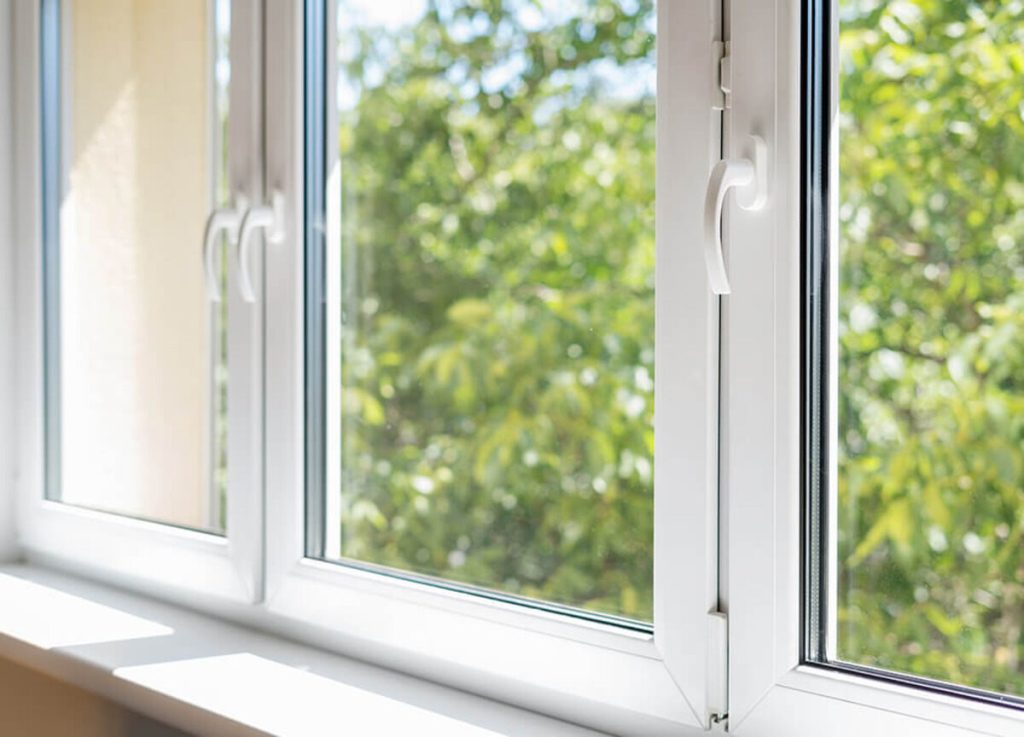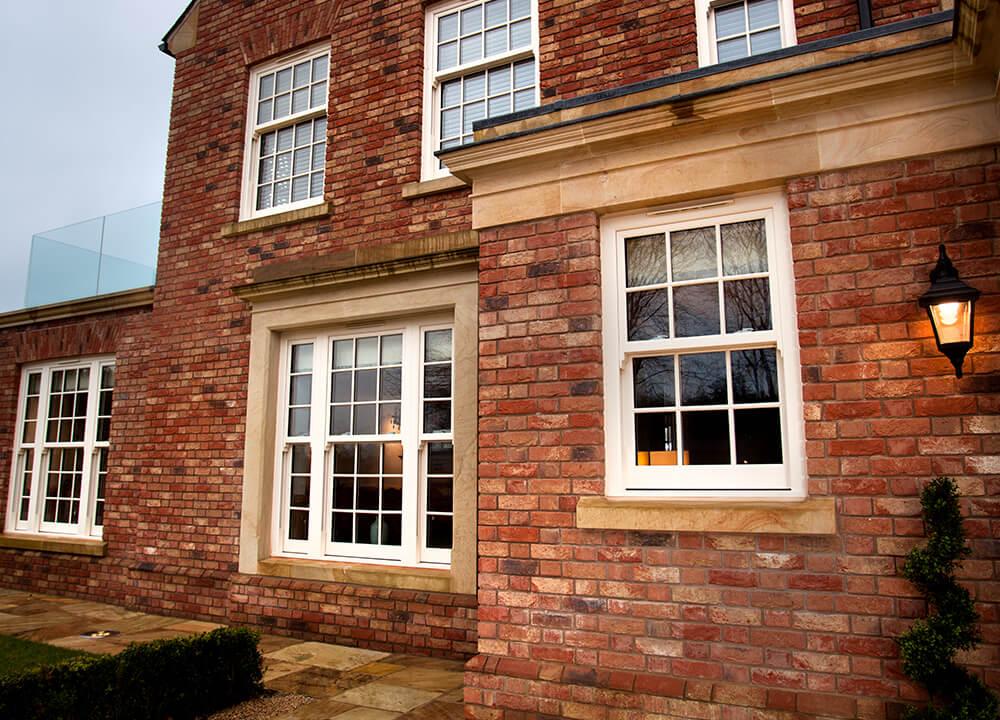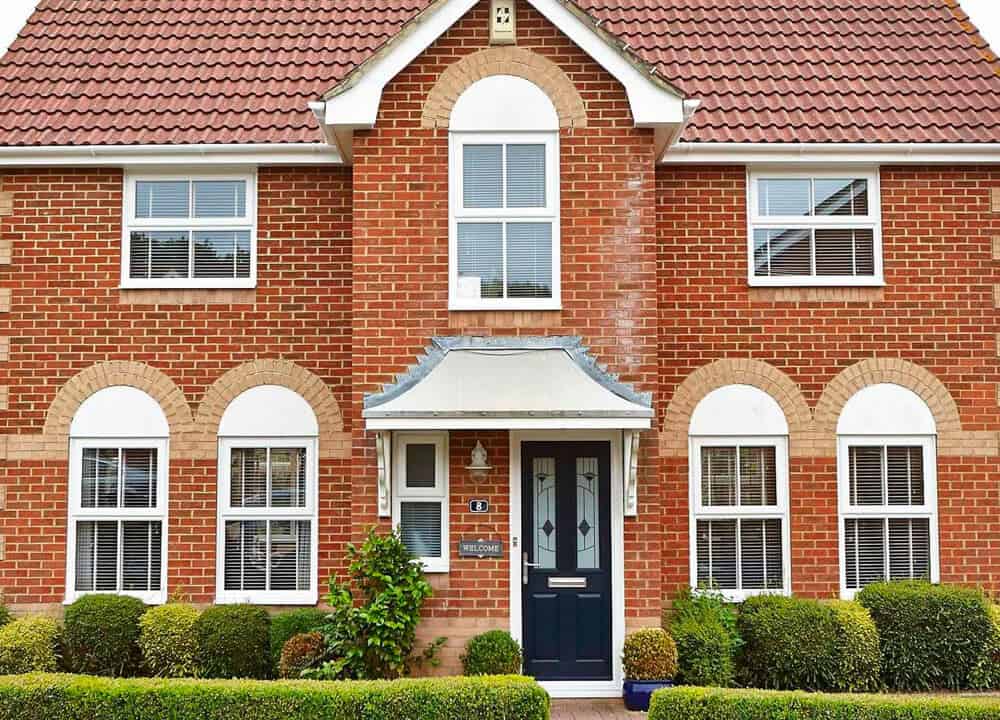When it comes to installing new windows or replacing existing ones in your Cheshire home, there’s more to consider than just how they’ll look. Building regulations for windows play a crucial role in ensuring that any window installation meets important safety, energy efficiency, and ventilation standards. These regulations exist to keep you and your family safe, comfortable, and protected.
At Northwich Glass, we’ve been helping homeowners navigate these regulations since 1959, ensuring that every window we install not only looks great but also fully complies with all UK building regulations. Whether you’re planning a single window replacement or upgrading all the windows in your home, understanding these requirements will help you make informed decisions.
Building regulations differ from planning permission, which primarily concerns appearance and the impact on the surroundings. Instead, building regulations focus on the technical performance of your windows – how they conserve energy, provide ventilation, offer security, and allow for emergency escape. They apply to both new builds and replacement windows in existing properties.
For many homeowners, these regulations can seem complicated, but they needn’t be overwhelming. This guide aims to break down the essential building regulations for windows in clear, straightforward terms, helping you understand what’s required when installing or replacing windows in your Cheshire home.

Key Building Regulations for Windows
Energy Efficiency Requirements (Part L)
Energy efficiency standards form perhaps the most significant portion of window regulations, covered under Part L of the building regulations. These requirements aim to reduce energy consumption and limit the amount of heat lost through your windows.
When installing new or replacement windows, they must meet minimum thermal performance standards under Building Regulations. In England, the maximum U-value permitted is 1.4 W/m²K, with new builds often requiring even lower values to comply with energy-efficiency targets.
Windows can also be rated using the Window Energy Rating (WER) scheme, which grades windows from A++ to E based on their overall energy efficiency. Under current regulations, new or replacement windows must achieve at least a C rating, though many modern windows exceed this standard.
At Northwich Glass, all our windows surpass these minimum requirements, with many achieving A+ ratings for excellent energy efficiency, helping reduce both your carbon footprint and your heating bills.
Ventilation Requirements (Part F and Part O)
Adequate ventilation is essential for maintaining good indoor air quality and preventing issues like condensation and mould. Part F of the building regulations covers these ventilation requirements.
All habitable rooms (bedrooms, living rooms, dining rooms) must have openable windows with an opening area equal to at least 1/20th of the room’s floor area. This ensures sufficient natural ventilation when needed.
Additionally, most windows now require trickle vents – small openings that allow a controlled amount of ventilation even when the window is closed. These are typically installed at the top of the window frame and help maintain background ventilation.
Part O, introduced more recently, addresses overheating in buildings. This regulation considers factors like solar gain through windows and requires measures to prevent homes from becoming uncomfortably warm, particularly in the summer months.
Safety Glazing (Part K)
Safety is paramount when it comes to windows, especially in “critical locations” where accidental impact is more likely. According to Part K of the building regulations, windows in these locations must use safety glass that breaks safely if shattered.
Critical locations include:
- Any glazing in doors up to 1500mm from floor level
- Glazing adjacent to doors (side panels) within 300mm of the door and up to 1500mm from floor level
- Any window where the glazing is within 800mm of floor level
In these locations, the glass must be either toughened or laminated safety glass that complies with British Standards (BS 6206 or EN 12600).
Fire Safety and Means of Escape (Part B)
Fire safety regulations are particularly important for windows on upper floors. Part B of the building regulations requires that all habitable rooms above ground floor level have at least one window that can serve as a means of escape in case of fire.
These escape windows must have:
- A clear opening width of at least 450mm
- A clear opening height of at least 450mm
- A total clear opening area of at least 0.33m²
- A window sill height no more than 1100mm from the floor
For ground floor windows, while specific escape provisions are less stringent, the overall fire safety of the building must still be considered in the window design and placement.

Other Considerations
Beyond these main regulations, windows must also comply with requirements for structural safety, sound insulation, and in some cases, resistance to forced entry. In conservation areas or for listed buildings, additional restrictions may apply to preserve the historical character.
Professional Installation and Compliance
One of the simplest ways to ensure compliance with all these regulations is to use a certified installer like Northwich Glass. As a FENSA-registered company, we’re authorised to self-certify that our window installations comply with all relevant building regulations.
When we install your windows, you’ll receive a FENSA certificate – an official document confirming that your windows meet all legal requirements. This certificate is important for your records and particularly valuable when selling your property, as it provides evidence of compliance to potential buyers.
If you don’t use a FENSA-registered installer, you’ll need to apply for building control approval directly from your local authority building control department, which can involve additional costs and inspections.
Our Windows
At Northwich Glass, all our windows – whether uPVC or aluminium – are designed to exceed current building regulations. Our range includes:
- Traditional and popular Casement windows with excellent thermal performance
- Tilt and turn windows that offer versatile ventilation options
- Flush sash windows that combine traditional aesthetics with modern performance
- Sliding sash windows that meet both heritage requirements and current regulations
- Bay and bow windows that create additional space while maintaining compliance
Each installation is carried out by our experienced team, who understand both the technical requirements and the practical aspects of ensuring compliance.

Upgrade Your Home with Confidence
Understanding building regulations for windows doesn’t have to be complex. The key takeaways are that your windows need to be compliant with certain rules.
By choosing a reputable, FENSA-registered company like Northwich Glass for your window installation or replacement, you can have peace of mind knowing that all these requirements will be met without you needing to become an expert in building regulations yourself.
If you’re considering new windows for your Cheshire home, we’d be happy to discuss your requirements and explain how our windows not only comply with all relevant regulations but can also enhance the comfort, appearance, and value of your property.
A great place to do this is at our Chesire showroom, we’d love to welcome you to check out our products and discuss your project.
For more information or to arrange a free, no obligation quote, you can:
- Call us on 01606 810 000
- Email us at reception@northwichglass.co.uk
- Use our online contact form
Frequently Asked Questions
Do I need planning permission as well as building regulations approval for new windows?
In most cases, replacing windows in an existing home doesn’t require planning permission, as it falls under ‘permitted development’. However, if you live in a listed building, a conservation area, or are changing the appearance significantly, you might need planning permission.
How do I know if my existing windows comply with current building regulations?
Windows installed before April 2002 weren’t subject to the same building regulations as today. If your windows were installed after this date by a FENSA-registered company, you should have received a certificate of compliance.
Will I need to upgrade all my windows to meet new building regulations?
Building regulations generally apply to new work or replacements, not existing installations. This means you don’t have to upgrade all your windows just because regulations have changed. However, when you do replace a window, the new one must comply with current regulations.
How do trickle vents work, and can I choose not to have them?
Trickle vents are small, controllable openings usually fitted at the top of the window frame that allow a small amount of ventilation even when windows are closed. They’re designed to provide background ventilation that reduces condensation and improves air quality.
How does the FENSA certificate process work with Northwich Glass?
When you choose Northwich Glass to install your windows, we handle all the certification paperwork. After installation, we register your installation with FENSA, who then issue a certificate directly to you, usually within a few weeks.

